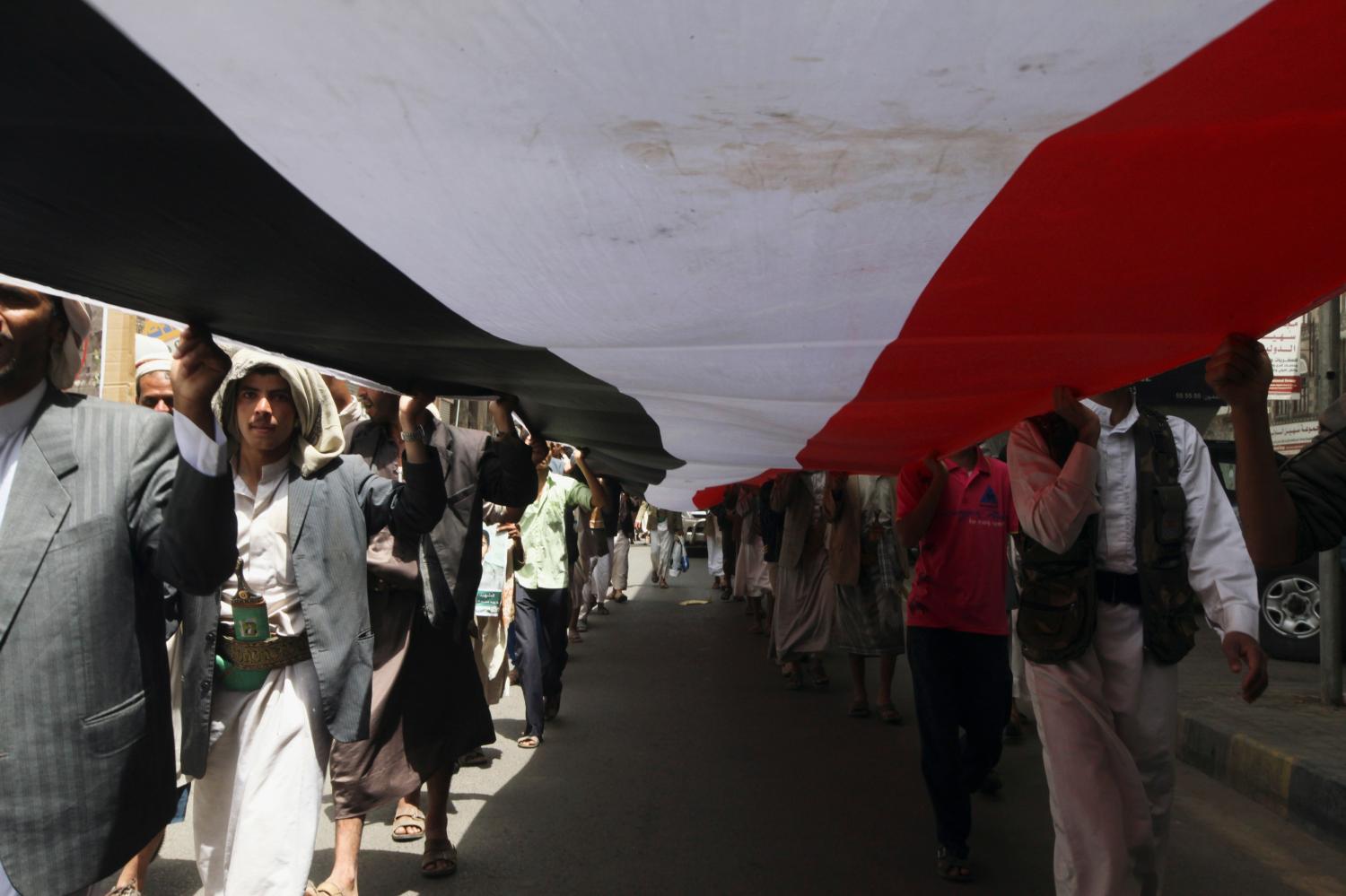Content from the Brookings Doha Center is now archived. In September 2021, after 14 years of impactful partnership, Brookings and the Brookings Doha Center announced that they were ending their affiliation. The Brookings Doha Center is now the Middle East Council on Global Affairs, a separate public policy institution based in Qatar.
In a paper for a European Council on Foreign Relations project on “International Justice and the Prevention of Atrocities,” Ibrahim Sharqieh says that regime change in Yemen would have been harder and riskier than a negotiated settlement, but that genuine regime change in Yemen required Saleh’s stepping down, the establishment of transitional justice laws, free and fair elections, far-reaching institutional reform, and an inclusive national dialogue process.
Sharqieh argues that international pressure on Yemen could have broken the stalemate and tipped the balance toward genuine regime change, which would have eventually promised a more sustainable peace. However, the United States’ obsession with an orderly transition for Yemen superseded all other issues at hand, including accountability and justice. Sharqieh says that stability was also the chief goal of the United Kingdom, another major player in Yemeni politics.
Sharqieh says that unless certain measures are taken to address the concept of justice in post-settlement Yemen, immunity laws could contribute to a new reality that perpetuates conflict rather than achieving the stability sought by international players. Having an orderly transition devoid of justice and accountability, he follows, will have profound implications for Yemen’s Southern issue.
Sharqieh concludes that a healthy transition requires Yemeni people to come to terms with what happened in their country’s past, holding accountable those who committed abuses and adequately compensating the victims and their families. To support the country’s transitional justice, the international community could engage in serious dialogue with the former ruling party, the General People’s Congress, to encourage them to implement deep party reform that could in part address the victims need for justice. However, doing so would require the international community to change its policy of half-heartedly helping establish transitional justice in Yemen.
This paper is one of 12 in a “International Justice and the Prevention of Atrocities” project launched by the European Council on Foreign Affairs. The project examines the record of past cases where international efforts to end conflict have taken different approaches to justice – ranging from the introduction of international tribunals to the acceptance of amnesties for the sake of peace.
Learn more about the Project, and access all 12 affiliated papers »




